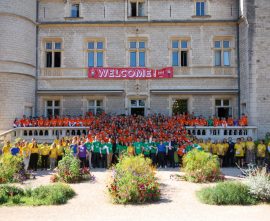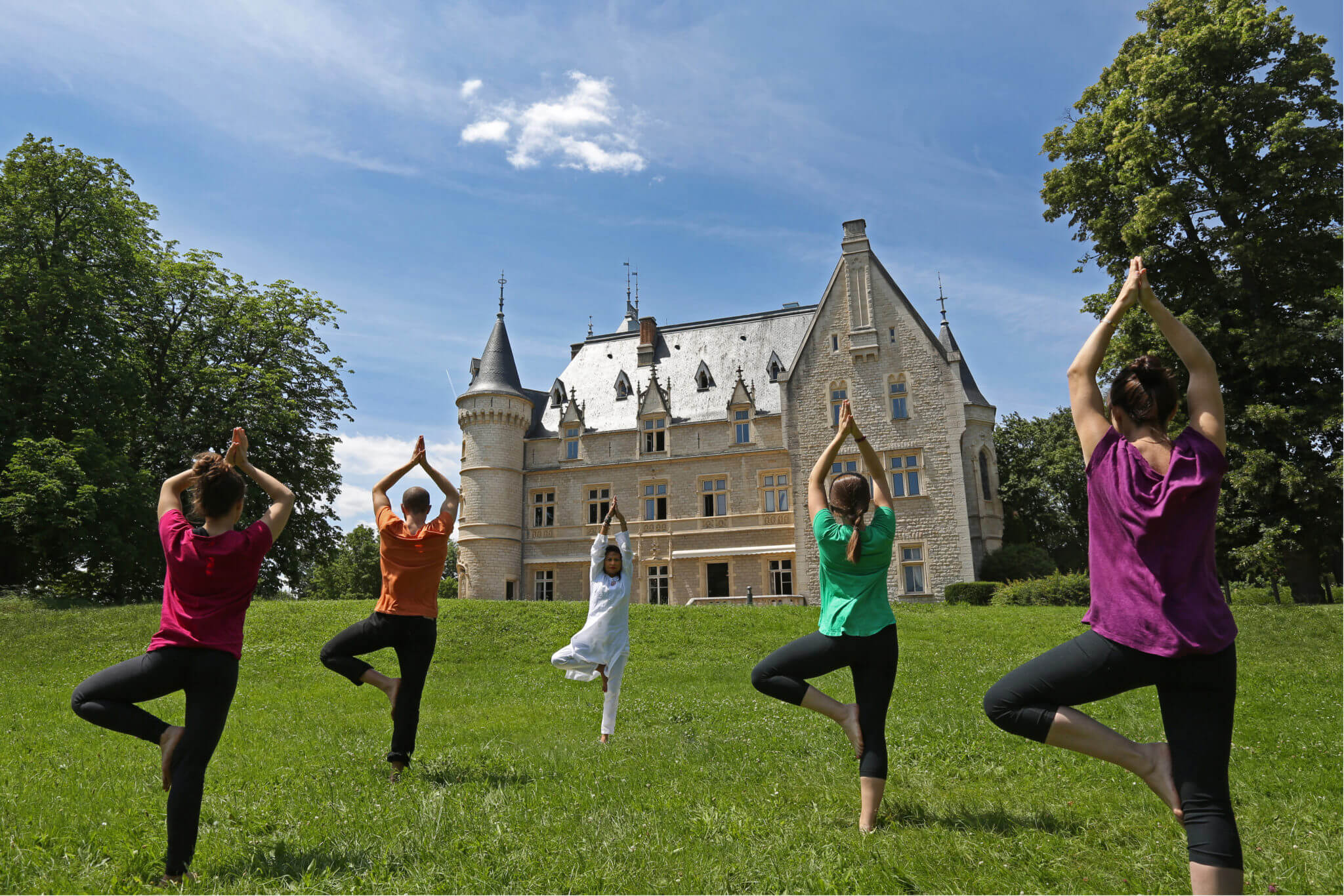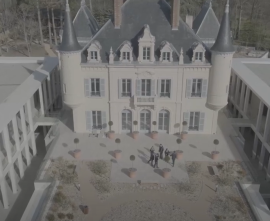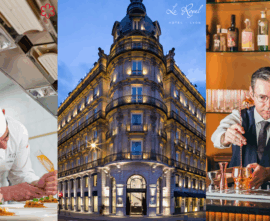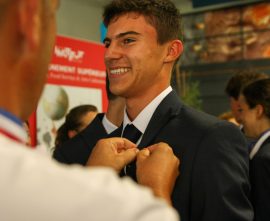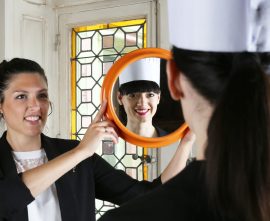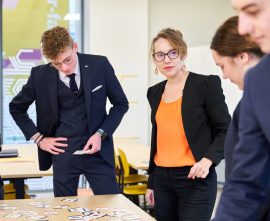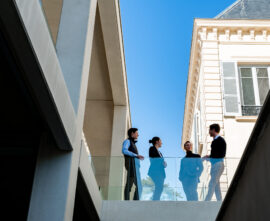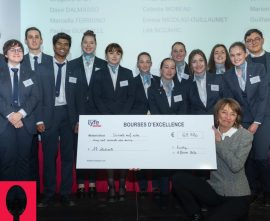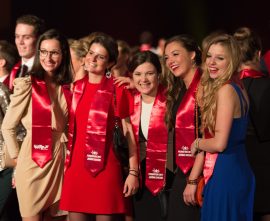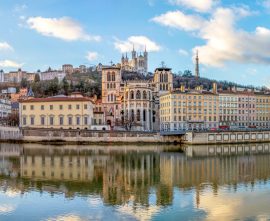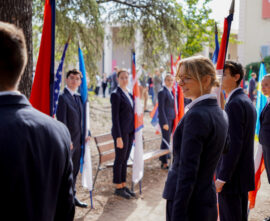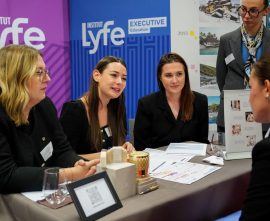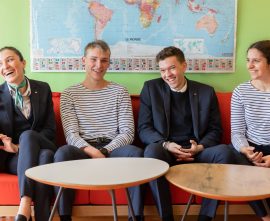ENTRY REQUIREMENTS, TUITION FEES AND ENROLMENTS
1 – How do I apply to Institut LYFE?
In the following cases:
- If you hold a non French baccalaureate
- Deferred start to the academic year for the Bachelors
- Admissions on record
- Master’s degree/MSc
Applications are made directly via the Apply form on our website.
Students with French baccalaureate applying to join one of our Bachelor programmes at the beginning of September must submit their application via the Parcoursup national admissions platform according to the timetable set by the French government each year.
2 – Are there any specific subjects I should focus on in high school to support my application to Institut LYFE after the baccalaureate (or international equivalent)?
The Institut Lyfe Bachelor programmes are open to all holders of a baccalaureate (or international equivalent) qualification, irrespective of the specialisations taken at high school (in the final 2 years).
3 – I am taking a mainstream baccalaureate (or international equivalent) and have never worked in the sector, is this a handicap?
No, to apply for a Bachelor’s degree, you must have either a mainstream baccalaureate, a technological baccalaureate or a vocational baccalaureate qualification (or their international equivalent).
For overseas applicants, you must have a qualification that is officially recognised as equivalent to the French baccalaureate.
The fact that you don’t have any previous experience in the hospitality or culinary arts professions will not penalise your application. Any experiences that demonstrate your interpersonal skills, your creativity and your people skills will be seen as positive (involvement in clubs and societies, sports activities, responsibilities at high school, etc.).
4 – Do you have to have a background in hospitality, food service, culinary arts or pastry cooking to apply?
Come as you are, we are open to all types of school-leaving qualifications. Although more than 70% of our students come from a general educational background, technical and professional profiles always figure prominently in our recruitments and do well at Institut Lyfe.
5 – What aspects of my application to study for a Bachelor’s degree will be looked at the most carefully?
All of your high school transcripts will be examined carefully, including: average grades, appraisals, attendance…
6 – Are placements, summer jobs or language stays taken into account when considering my application?
Anything you may have done in terms of professional experience, even for a short period of time, such as language courses, for example, is of interest to the selection panel.
7 – What should I highlight in my personal statement?
The personal statement, just like the section where you’re asked to write about your future choice of studies, allows you to explain specifically why you wish to follow a specialised training programme: why you think you’re cut out for this sector and why you wish to take this programme at Institut Lyfe, what qualities will enable you to succeed at the Institute, and the coherence of your background so far.
8 – Is it necessary to have had some professional work experience in the professions taught at Institut Lyfe?
We would recommend you do, but it’s not a formal requirement. It does help confirm your career direction, and we can even put you in touch with our network to do a work placement during the school holidays.
9 – How are the admission tests organised?
The admission procedures are indicated on each individual programme page, which you can find on our website. Details of the procedures, as well as the financial and registration conditions, will be sent to you when you request a brochure on the website.
10 – What are the selection criteria used during the admissions interview?
The selection is based on the applicant’s academic ability and motivation to pursue higher education, as well as whether their personality will enable them to be fulfilled during their studies at Institut Lyfe and in the hospitality, food service or culinary arts sectors. The selection panel’s role is to discover who you are and to pinpoint your qualities. Above all, it is a question of assessing the match between your personality, your projects and the School’s educational programme.
11 – Is there a programme admissions system for applicants already in higher education?
Our 3-year and 4-year Bachelor degree programmes are open for admissions into Years 2 and 3. Entry requirements are a 2-year higher education qualification (Bac+2 or international equivalent).
Our Year 4 specialisations are also open to applicants from higher education with a 3-year qualification (Bac+3 or international equivalent).
Remedial modules are offered or even required depending on the original programme of study of the student and the number of places available is limited.
12 – What are the tuition fees for programmes at Institut Lyfe?
The tuition fees for each of our programmes are sent to you when you request a brochure on the web site.
13 – Is there a scholarship or bursary scheme available?
Institut Lyfe proposes several types of scholarships or bursaries to help you finance your studies:
- Institut Lyfe scholarships (academic achievement scholarships) financed by our Foundation.
- Eiffel scholarships for international students at Masters or PhD level.
For French students, Crous income-related bursaries are also available for our 3-year and 4-year Bachelor degree programmes accredited by the French State. Registration for these bursaries is done directly on Parcoursup for students applying via the platform.
14 – What is the age limit for applying?
26 years old, beyond that our continuing education department is there to help you.
15 – I am not yet sure of my career path, wouldn’t it be better to follow a general education programme before joining you?
It’s perfectly normal to ask yourself questions. Today, higher education is such that there are bridges between courses. At Institut Lyfe, we offer you a hands-on environment that will allow you to reveal yourself. Before you make your decision, we can help you in your career choice, by offering you placements in our different professions. In this way you will be able to confirm the choice you have made.
TEACHING AND LEARNING
1 – What is the balance between practical and theoretical classes?
Depending on the Bachelor’s degree taken, the academic element represents between 55% and 70% of the teaching, over the 3 or 4 years of study.
2 – What sort of collaborative projects or business games do students take part in?
Each of our programmes is based on an experiential learning approach that aims to develop students’ sense of responsibility, team spirit, managerial agility, creativity and entrepreneurial skills. During their course, our students create from A-to-Z pop-up restaurant concepts or hotel development projects, they act in plays, carry out consulting missions for major brands or take up challenges in the areas of cuisine, pastry or tableware…
3 – Does the school offer help in finding internships and more generally provide assistance with students’ career projects?
Our team of Talent Managers will support you throughout your studies. They are there to detect your potential, reveal your talents and support you in defining your career project, including: recruitment workshops, personality tests, putting you in touch with a network of more than 800 partner organisations.
4 – I will be under 18 in September, what about business placements?
There are two possibilities:
- If you are 18 next April, then you can do a business placement.
- If you are under 18 in April, then the placement will take place in one of our training centres.
5 – Are students offered opportunities for international mobility at the Institute?
Institut Lyfe is a member of the Erasmus+ programme and also offers international mobility opportunities beyond the borders of Europe. Depending on the programme chosen, in the 2nd or 3rd year, you will have the opportunity to spend a semester abroad, thanks to our network of 23 partner schools in 18 countries.
6 – Are events organised to connect Institut Lyfe students and alumni?
Our “Alumni for Good” community includes more than 4,500 graduates from over 80 countries. We regularly organise professional events (Alumni Club in France or overseas, Career Match recruitment forums, etc.) to promote interaction between students and graduates. Many Alumni regularly give courses and conferences at the Institute on strategic and operational topics and share their professional experiences with our students.
7 – When your course is also available in English, is it the same programme?
The programme is strictly the same because the same qualification is awarded at the end. It is recommended to choose the English course when you have a good command of the language, as the workload does not allow you to improve if your level is too low. For these courses, the admission interviews are in English.
8 – Are the qualifications awarded by Institut Lyfe accredited or recognised by the State?
Our 3-year Bachelor degrees in International Culinary Arts Management and in International Pastry Management, and our 4-year Bachelor degrees in International Hospitality & Restaurant Management are approved by the Ministry of Higher Education and Research.
All our other programmes are listed in the National Directory of Professional Certifications (RNCP).
9 – What is the added value of state approval of my future qualification?
The visa accreditation certifies the academic quality of the programme, the employment prospects of students, the international outlook and the engagement with the world of business. It increases the international portability of your qualification, making it easier for you to pursue your studies in another country through an academic credit system (ECTS). These credits offer international academic recognition to your studies while also enabling you to pursue a certified Master’s degree.
For the French students, the recognition of our School by the State allows you to benefit from income-related grants awarded by the CROUS in France.
10 – What options for further studies are open to me if I complete a Bachelor’s degree at Institut lyfe?
The 3-year Bachelors in Culinary Arts and in Pastry offer graduates who wish to do so an optional specialisation in the 4th year (Wine and Beverage Management, Entrepreneurship, Events, etc.). Graduates can also benefit from a gateway to our Master’s degree in Culinary Leadership & Innovation (5-year qualification).
The 4-year Bachelors in Hospitality & Restaurant include a compulsory specialisation in the 4th year. Graduates may, if they wish, continue their studies on our MSc in International Hospitality Management (5-year qualification).
11 – By choosing a school such as yours, don’t I run the risk of being locked into a sector without being able to get out?
Quite the opposite, the skills and knowledge acquired not only guarantee you employability in a sector offering huge opportunities, but can also be directly used in other professions. Our students are customer-focused, culturally aware, persuasive, creative, able to work under pressure, presentable, team players, emotionally controlled, resilient and always curious to learn.
12 – Other institutions offer courses similar to yours, how do I choose?
Only courses delivering qualifications approved by the Ministry of Higher Education and Research are accessible via Parcoursup. This is a guarantee of quality and excellence. We are aware of the commercial pressure that you may be under from other courses that are not subject to the official academic calendar and we invite you to check them out as well to make up your own mind. Please note that these students often have to take a refresher course when they succeed in getting into our school. Similarly, we are the only school to offer both a large number and quality of work experience opportunities, immersive teaching methods and truly personalised support.
CAMPUS LIFE AND INDUCTION
1 – Does Institut lyfe have a student residence?
Our school has a student hotel residence located 5 minutes’ walk from the heart of the campus. Intended primarily for international students and first year students, it offers 114 rooms with room service, gym, recreation area, etc.
Institut Lyfe also provides its students with an accommodation platform managed by its Campus Team, whose members of staff are also there to help you with any day-to-day formalities.
2 – Is an induction day organised for new students?
More than just an induction day, an induction week is organised at the beginning of each academic year for new students. The programme includes: team building sessions, discover Lyon city rally, Bocuse banquet, freshers’ weekend …
3 – I am an overseas student, how can the School help me with settling in to France and with fitting in at Institut Lyfe?
Institut Lyfe has been awarded the “Welcome to France” Label, which attests to the quality of its reception facilities for international students.
Institut Lyfe has set up a special unit exclusively for our international students. The team will help you obtain your visa or residence permit, improve your level of French thanks to language courses and help you settle into France and the region through the organisation of intercultural workshops, conferences on diversity management and visits to discover the French heritage.
4 – Are there sports and cultural activities on campus?
At Institut Lyfe, a multitude of sports activities are available to help you relax or unwind, including: tennis, football, yoga, cross training, basketball and rock climbing.
Sports teams exist and others can be set up in partnership with the Campus Unit.
Arts and cultural activities are organised on a daily basis on Campus, for example: music, singing, dance, theatre and painting.
5 – Are there student clubs and societies?
Several student clubs and societies exist, contributing to an exciting campus experience. By joining one of these organisations, you will be able to become fully involved in the life of the School by proposing new projects and ideas, including: the BDE (Students’ Union), the BDS (Sports Society), Trait d’Union (Humanitarian Society), Les Pépins (Wine Society) and Eco-Campus (Sustainable Development Society).

